- Home
- Robert B. Parker
Walking Shadow s-21 Page 11
Walking Shadow s-21 Read online
Page 11
The woman looked as if she exercised often. Her body was firm, and her stomach was flat. With the towel always concealing her features, there was nothing to tell me who she was. Well, not quite nothing. Though it was hard to be sure in a Polaroid, she appeared to have no body hair. Theoretically this oddity would be an excellent identity clue. But it was of limited practical value.
The pictures didn't have to mean much. Lots of people liked to take nude pictures of themselves and their partners. Some of them even concealed their face. Still it told me that Sampson had a relationship which he concealed. No one knew of it. Everyone said he had no girlfriends. And the fact that this girlfriend concealed her identity was at least mildly interesting. What was more interesting was that the cops had missed it. It wasn't that hard to find, and any cop would know to look under a drawer when searching a place.
These cops had searched it so thoroughly that they'd made a mess, and they hadn't found these pictures?
It gave one pause. But here was not the place for pausing. I put the pictures back in the envelope and put the envelope in my inside jacket pocket, and went through the rest of the room. I unmade the bed and remade it. I felt under every drawer, behind the poster, all the usual moves, and didn't find anything else that mattered. I put everything back carefully. I was neat and polite and generally swell, for a gumshoe. But it is also easier to search a place if you don't make a mess. You're not pawing through the jumble you just created.
I left Sampson's room, pulled the door shut and heard it latch behind me. Then I went down the two dark flights of narrow stairs and knocked on Ms. Rebello's door. She must have been making late breakfast or early lunch. I could smell bacon cooking in there.
I did not think it cooked for me.
The door opened on the safety chain.
"Yuh?"
"I wish to take action on this," I said.
"Just how messy were the police who searched that room earlier?"
"Messy," she said.
"A couple goddamn pigs, excuse my French."
"Emptied out drawers, that sort of thing?"
"Clothes all over the floor. Papers, bedclothes. Pigs."
"Well, they're going to regret it," I said.
"That all?" she said.
"Can I pack the place up and rent it?"
"Absolutely," I said.
"And please accept my apologies for the mess and the delay as well."
"Yeah," she said, "sure," and closed the door.
I smiled to myself in the ugly little hall. Got to take fun where you find it. I went out the front door and pulled it carefully shut behind me and heard the latch click. I glanced up and down the street.
There was no one in sight. In front of the house my car started with a small puff of smoke from the exhaust and the window washers began to move. I turned the collar up on my leather jacket, and went down the four front steps into the rain, and across the sidewalk and into my car.
"Any luck?" Hawk said.
"I don't know," I said.
I took out the nude pictures and passed them around.
"The guy Sampson?" Vinnie said.
"Yeah."
"Know the woman?"
"No."
"She's got no pussy," Vinnie said.
"Observant," I said.
"And eloquent," Hawk said.
Neither Vinnie nor Hawk had anything meaningful to contribute to the absent body hair question. There was a lively discussion of nude women we had known. The consensus was that, while body hair varied considerably, none of us had ever known anyone with none. Vinnie handed me back the pictures, and I put them back in my pocket.
"Better count them," Hawk said, and put the car in drive and eased away from the curb.
CHAPTER 28
Ocean Street in Port City starts at the foot of Hill Street and runs parallel to the harbor for maybe a mile and a half, before it curves around an inlet and turns into Seaside Drive. One on each side of the street, Hawk and I started at the south end, near the theater, and began to ask people if they knew Craig Sampson. We each had a publicity still from the theater to show. We kept an eye on each other as we worked, and Vinnie dawdled along behind us in the car with a shotgun leaning against the front passenger seat.
The Port City Tap was my fifth stop. On a wet afternoon it was a haven of good cheer. Three guys were sitting at the bar not talking to each other, and a woman wearing a black cowboy hat, with a big feather, was in a booth by herself with a stack of quarters in front of her on the table next to something that looked like a strawberry soda, but probably wasn't. The jukebox was playing some kind of country western music that sounded to me like a chicken being strangled, though Susan would probably have liked it. A television set above the bar was silently showing a soap opera.
The guy behind the bar looked like a reject from the World Wrestling Federation. He was large with a shaved head and a big, droopy moustache. He was wearing a black tee shirt with the sleeves cut off, and a Harley-Davidson logo on the front. Across his thick upper arm, just below the right shoulder, was a surprisingly neat tattoo which read Born to Raise Hell.
The three guys at the bar didn't appear to be listening to the music or watching the television. They weren't with each other, and maybe weren't with anyone. Ever. None of them paid any attention to the woman in the booth. I slid onto a stool next to one of them, and took out my picture of Craig Sampson.
"Ever see this guy?" I said and held the picture in front of him.
The guy was wearing a yellow rain slicker over a red plaid flannel shirt. He had a half-full beer mug in front of him and an empty shot glass beside it. He stared at the picture and back at his beer and shook his head. The bartender moved down the bar.
"What'll it be, pal?"
I held up the picture.
"Know this guy?" I said.
"We don't 'low no solicitation in here," the bartender said.
"Why not?" I said.
"Annoys the customers."
"More than the music?" I said.
"You want a drink, I'll sell you a drink," the bartender said.
"Otherwise hit the road, Jack."
"
"And never come back no mo' no mo'."
"You got that right, pal. We ain't running no fucking information booth here, you know?"
"Gee," I said, "and the place seemed so inviting."
The bartender had a white apron tied around his waist. He stared at me with his big arms folded across his chest.
"I'll have a draught beer," I said.
The bartender drew it and put it in front of me.
"Three and a quarter," he said.
"I'll run a tab," I said.
"No you won't."
I took a five from my wallet and put it on the bar. The bartender made change and slapped it down on the bar in front of me. All his motions were harsh.
I held up Sampson's picture again.
"Ever see him in here?" I said.
"Who wants to know?"
I looked carefully over each shoulder and slowly around the room, and back at the bartender.
"Must be me," I said.
"You looking for trouble?"
I grinned at him.
"If I say yes, will you tell me I've come to the right place?"
The bartender opened and closed his mouth. I knew I had stepped on his next line. I was still holding Sampson's picture up.
"Ever see him in here?" I said.
"Jesus," the bartender said, "you're a persistent bugger."
"Thanks for noticing," I said.
"And a real wiseass too."
I smiled modestly.
"What about this guy?" I said.
"Don't know him."
"Never saw him in here?"
"No."
"Ever hear of a street gang named the Death Dragons?"
"Are you some kind of cop or something?" the bartender said.
"Some kind," I said.
"Ever hear of the Death Dragons?"
"No. It's not bike guys."
"No. Chinese."
"Oh, fuck, that's Chinatown shit. I don't know nothing about Chinatown."
"Ever hear of a guy named Lonnie Wu?"
"No."
"Kwan Chang?"
"Who?"
"It's a what. Kwan Chang."
He shook his head.
"How come you were so hostile when I came in?"
"I wasn't hostile, I just didn't know you."
"You're hostile to everyone you don't know?"
He looked at me as if I were disputing the law of gravity.
"Yeah," he said.
"Of course."
I looked at the guys sitting along the bar.
"Any of you ever see this guy?" I said.
They shook their heads.
"Death Dragons mean anything to you? Lonnie Wu? Kwan Chang?"
They kept shaking their heads. Probably more exercise than they were used to. I looked over at the woman in the booth.
"What's she drinking?" I said to the bartender.
"Gin, tonic, splash of grenadine."
"Jesus," I said.
"Mix one up."
The bartender made the drink and set it in front of me. I paid him, picked up the drink, and walked over to the woman.
"Hi," I said and put the drink down in front of her.
"Okay if I buy you a drink?"
She looked at me vaguely.
"Sure," she said.
"May I sit for a minute?"
"Sure."
I sat and took a sip of my beer and didn't say anything. She took a long pull on her drink and turned her gaze on me. The vagueness was still there, but she was focusing on me.
"Big," she said.
"I try," I said.
"I saw you back Eddie down."
"Eddie?"
"Bartender."
"I like to think it was superior charm," I said.
She shook her head.
"Naw. Eddie don't know nothing about charm. You got the look."
"The look?"
"Yeah." She drank some more pink gin and tonic.
"Look says double."
"You've seen the look before?" I said.
"I know men. You'd break Eddie in two."
I smiled at her.
"If you asked me to."
She giggled and finished her drink. I gestured to Eddie for another one.
"You from around here?" she said.
"Boston," I said.
He brought the drink around and put it in front of her. He looked at my beer. I shook my head, and he went away.
"Too good to be from Port City," she said.
She was a short, sturdy woman with thick reddish hair, and high cneekbones and a lot of bright red lipstick. Aside from the cowboy That, she had on a too-tight horizontal-striped jersey and jeans. I c Uldn't tell because she was sitting down, but I'd have bet a lot tat the jeans were too tight also. A long denim coat with a eat her-trimmed collar hung on the corner of the booth.
"Ever see this guy?" I said and showed her my picture of Craig She got a pair of half glasses from her purse and put them on and took the picture from me and studied it. Then she gave it back to me and shook her head.
"No such luck," she said.
"Know a guy named Lonnie Wu?"
She drank some of her drink and lingered over the last swallow.
"God, that hits the spot, doesn't it?"
I waited.
"Lonnie Wu. Yeah, runs the Chinese restaurant up Ocean Street, near that theater."
"What do you know about him?"
"That's it," she said.
"Just runs a restaurant."
"I hear he's an important man in town."
She took another appreciative swallow of her drink.
"He's Chink," she said.
"How's he going to be important?"
"Good point," I said and smiled. I was oozing charm like an overripe tomato.
"Know anything about the Death Dragons?"
"Who're they? Rock group?"
"Chinese street gang."
"Don't know about that. Don't know nothing about no Chinks."
She edged a little closer to me in the booth so that her thigh pressed against mine. She looked straight at me. Her eyes were big and slightly oval. But they were reddish, and puffy; and there was that unfocused look in them, as if some of the interior lights had burned out.
"Know what?" she said.
"What?"
"I like you."
"Everyone does," I said.
"It's a gift."
She emptied her glass and waved at Eddie while she thought about that, and he brought her another drink.
"You like me?" she said.
"Of course," I said.
"So how come you don't talk about me? Just talk about Chinks?"
"Well, there's sort of a lot of them up here," I said.
"You got that right what's your name?"
"Spenser."
"You got that right, Spence. There's aka-jillion of them, and more coming."
I sipped a little beer with my left hand. She traced a forefinger on the back of my right hand where it rested on the tabletop.
"Strong," she said as if to herself.
"And more coming?" I said.
"Boat loads. Every goddamned week more Chinks come in."
"On a boat?"
She nodded.
"I live out Brant Island Road. Unload them there middle of the damn night. You married?"
"Sort of," I said.
"You got somebody?"
"Yeah."
She drank.
"Had so many somebodies can't remember their fucking names."
"Tell me about these Chinese unloading in the night?" I said.
She was singing to herself, and maybe to me, in a small, surprisingly girlish voice.
"Everybody, got somebody sometime…"
"I think you got the lyric wrong," I said.
"You fool around?" she said.
"No."
She nodded.
"Well, fuck you then," she said.
"Or not," I said.
"Everybody falls in love somehow…"
She picked up her glass and drank most of it and put it down and leaned back in the booth and closed her eyes. She began to cry with her eyes closed. I didn't say anything. Pretty soon she stopped crying and started snoring.
"Ah, Mr. Excitement," I said out loud.
"You've done it again."
CHAPTER 29
Susan and I had set up a room in Concord. The kitchen and part of the dining room were reduced to bare ruined choirs. But I had moved the refrigerator into the dining room, and the furnace worked, and there was running water. We put a bed and a table and two chairs in the front bedroom upstairs, the one with the fireplace, hung a curtain in the shower, and stocked the back bathroom with towels and other necessities. Susan and I made the bed, which wasn't as easy as it might have been, because Pearl kept getting onto it and snuggling down every time we spread something out.
"Who could ask for anything more," I said when we finally finished with the bed.
"Except maybe a kitchen."
Pearl was pleased with the way we'd made the bed. She turned three circles on it, and curled herself against the plumped-up pillows which she rearranged but slightly.
"Why do we need a kitchen when we have a phone?" Susan said.
"I forgot that," I said.
It was a late Saturday afternoon, getting dark. Susan had brought a vacuum and was vacuuming fiercely. I went to the cellar, got some firewood, courtesy of the previous owner, hauled it upstairs, and built a fire. Then I went to examine the larder.
Susan had brought a picnic supper, and stashed it in a large carry-out bag in the refrigerator. I opened it fearfully. Susan was capable of an apple and two rice cakes. I looked in the bag. There were four green apples. My heart sank. But there was also cold chicken, seedless grapes, French bread, cranberry chutney, a
nd a significant wedge of cheese. There were even paper plates and plastic utensils, and clear plastic cups. I had contributed two bottles of Krug, which lay coldly on their side in the refrigerator, and a small red and white Igloo cooler full of ice.
I carried everything upstairs and set it on the table. I opened the cooler and stuck the champagne into the ice. Susan had finished vacuuming and was aggressively dusting all surfaces.
"Isn't it better to dust before you vacuum?" I said.
"No."
I nodded and put the food on the table. Pearl immediately moved down the bed, and lay so that her nose was as close as possible to the table, without actually getting off the bed.
"Where's that blue thingie," she said as she paused in her dusting to rub a small mark off one of the window panes.
"It's not nice to call it a blue thingie," I said.
"I mean the blue tablecloth. Only a barbarian would eat off a bare tabletop."
I made sure the picnic basket was closed so Pearl would not forage in it, and went for the tablecloth. Susan went to shower. I brought the tablecloth back, put the tablecloth on the table, went to the shower and poked my head in.
"Amscray," she said.
I pulled my head out of the shower and went back to the bedroom and stood looking at the fire. My shotgun was leaning on the wall next to my place at the table, and the.9 mm Browning was neatly arranged beside the plastic knife and spoon. The Death Dragons hadn't bothered me again. But that didn't mean they wouldn't. And they probably didn't know about Concord. But that didn't mean they wouldn't, either.
We sat at the table under the low ceiling in the old house with the fire dancing in the fireplace and sipped our champagne. The cold supper lay waiting before us, and our dog was asleep on the bed.
"Amscray?" I said.
"Un huh."
"From a Harvard Ph.D.?"
"I minored in pig Latin," Susan said.
She was wearing a big white terrycloth robe that she'd brought from home, and after her shower, without makeup, her face was like a child's. Albeit a very wised-up child.
"I know just what you must have looked like," I said.
"When you were a little girl."
"And I can't imagine you," she said, "as a little boy."
I smiled at her.
"Me either," I said.

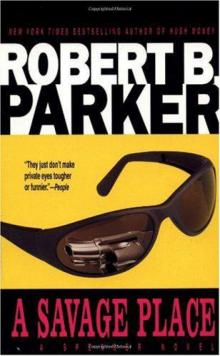 A Savage Place s-8
A Savage Place s-8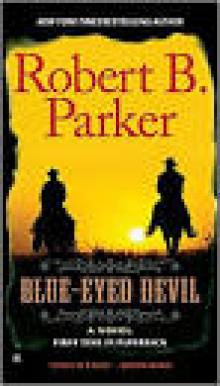 Appaloosa / Resolution / Brimstone / Blue-Eyed Devil
Appaloosa / Resolution / Brimstone / Blue-Eyed Devil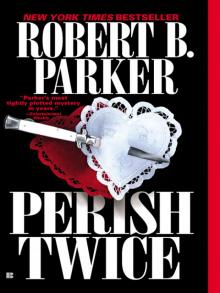 Perish Twice
Perish Twice Spare Change
Spare Change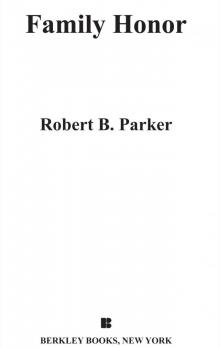 Family Honor
Family Honor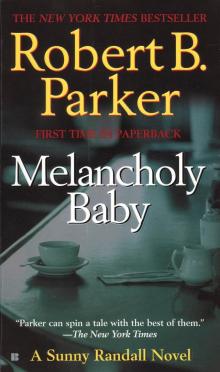 Melancholy Baby
Melancholy Baby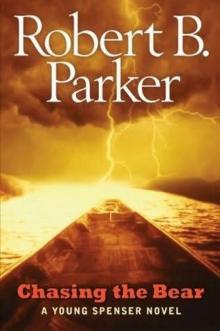 Chasing the Bear
Chasing the Bear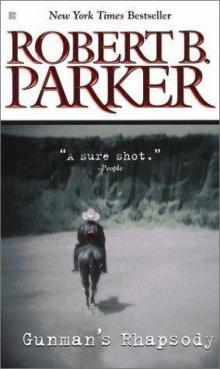 Gunman's Rhapsody
Gunman's Rhapsody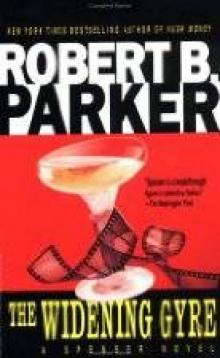 The Widening Gyre
The Widening Gyre Thin Air
Thin Air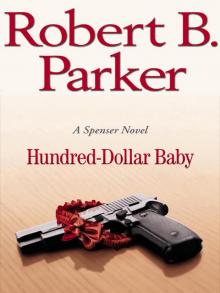 Hundred-Dollar Baby
Hundred-Dollar Baby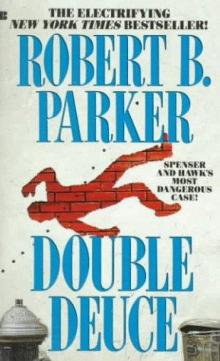 Double Deuce s-19
Double Deuce s-19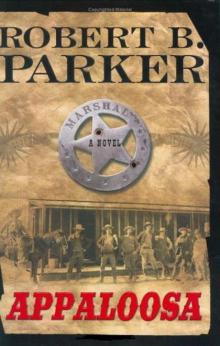 Appaloosa vcaeh-1
Appaloosa vcaeh-1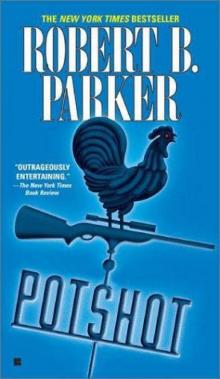 Potshot
Potshot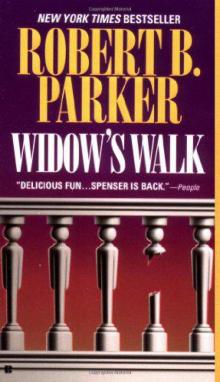 Widow’s Walk s-29
Widow’s Walk s-29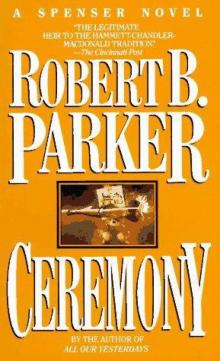 Ceremony s-9
Ceremony s-9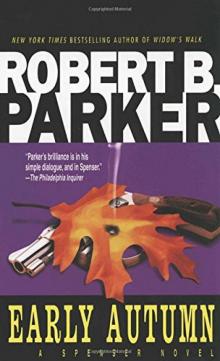 Early Autumn
Early Autumn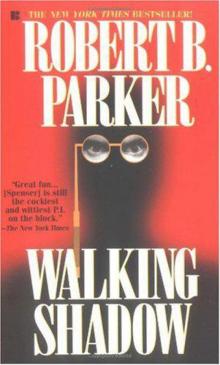 Walking Shadow s-21
Walking Shadow s-21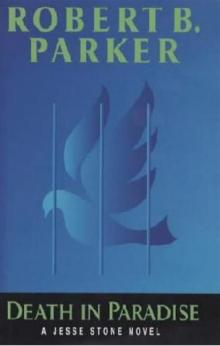 Death In Paradise js-3
Death In Paradise js-3 Shrink Rap
Shrink Rap Blue-Eyed Devil
Blue-Eyed Devil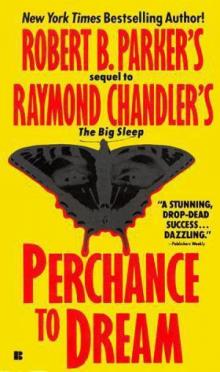 Perchance to Dream
Perchance to Dream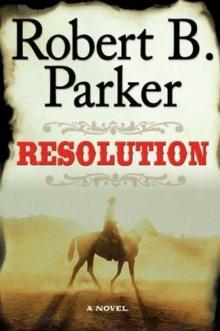 Resolution vcaeh-2
Resolution vcaeh-2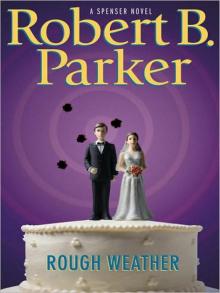 Rough Weather
Rough Weather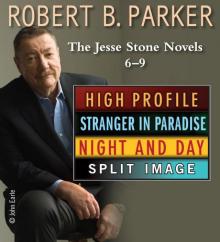 The Jesse Stone Novels 6-9
The Jesse Stone Novels 6-9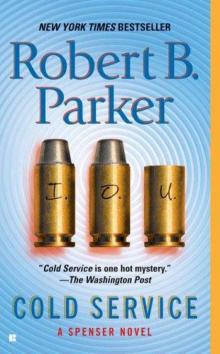 Cold Service s-32
Cold Service s-32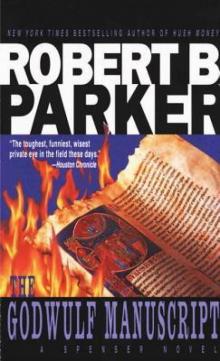 The Godwulf Manuscript
The Godwulf Manuscript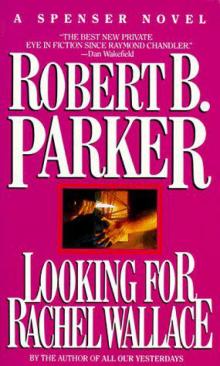 Looking for Rachel Wallace s-6
Looking for Rachel Wallace s-6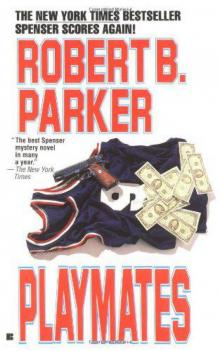 Playmates s-16
Playmates s-16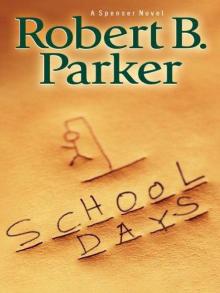 School Days s-33
School Days s-33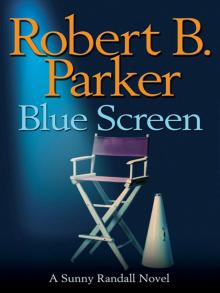 Blue Screen
Blue Screen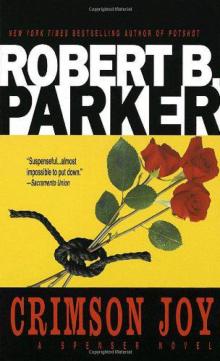 Crimson Joy
Crimson Joy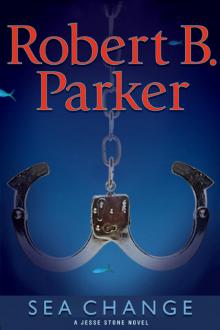 Sea Change js-5
Sea Change js-5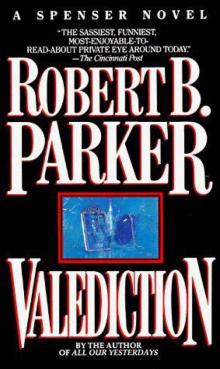 Valediction s-11
Valediction s-11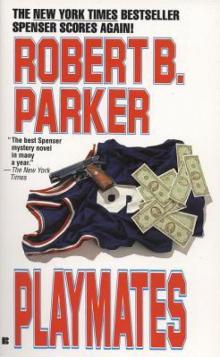 Playmates
Playmates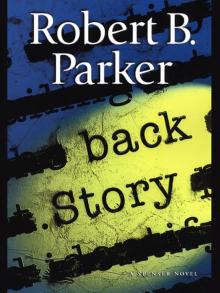 Back Story
Back Story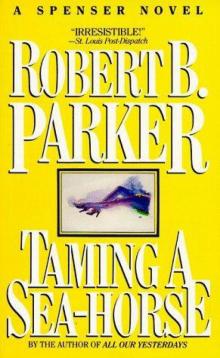 Taming a Sea Horse
Taming a Sea Horse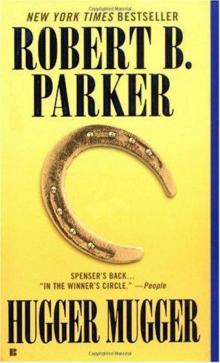 Hugger Mugger
Hugger Mugger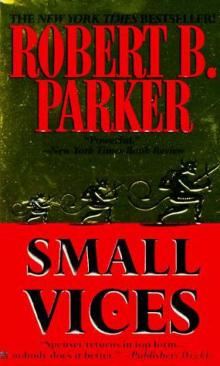 Small Vices s-24
Small Vices s-24 Silent Night: A Spenser Holiday Novel
Silent Night: A Spenser Holiday Novel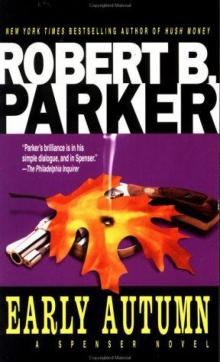 Early Autumn s-7
Early Autumn s-7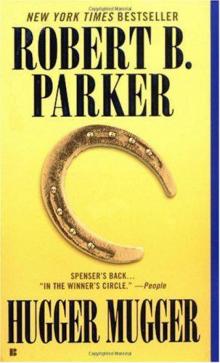 Hugger Mugger s-27
Hugger Mugger s-27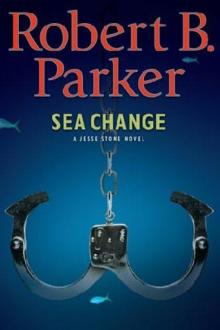 (5/10) Sea Change
(5/10) Sea Change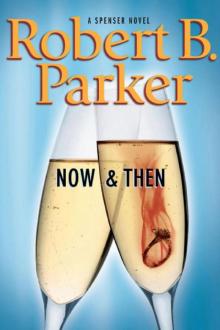 Now and Then
Now and Then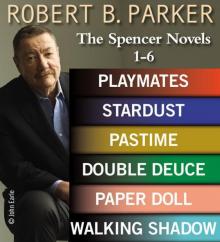 Robert B. Parker: The Spencer Novels 1?6
Robert B. Parker: The Spencer Novels 1?6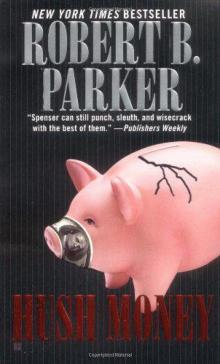 Hush Money s-26
Hush Money s-26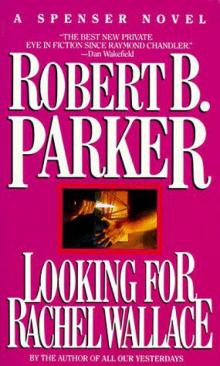 Looking for Rachel Wallace
Looking for Rachel Wallace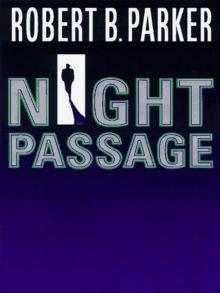 Night Passage
Night Passage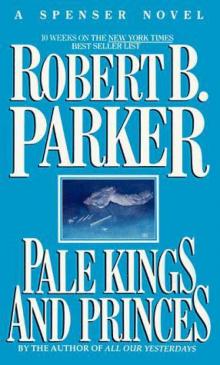 Pale Kings and Princes
Pale Kings and Princes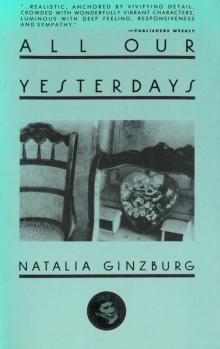 All Our Yesterdays
All Our Yesterdays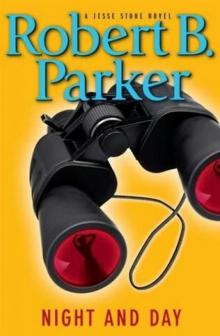 Night and Day js-8
Night and Day js-8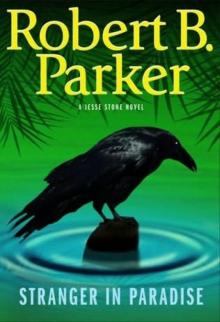 Stranger in Paradise js-7
Stranger in Paradise js-7 Double Play
Double Play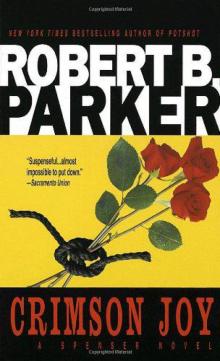 Crimson Joy s-15
Crimson Joy s-15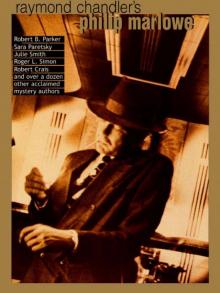 Raymond Chandler's Philip Marlowe
Raymond Chandler's Philip Marlowe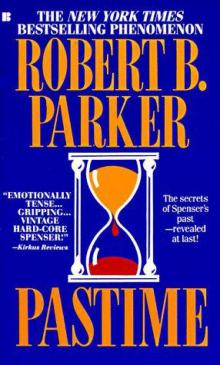 Pastime
Pastime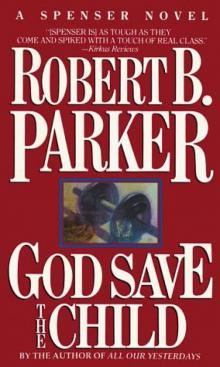 God Save the Child s-2
God Save the Child s-2 Bad Business
Bad Business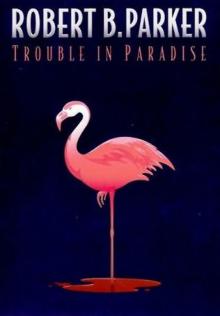 Trouble in Paradise js-2
Trouble in Paradise js-2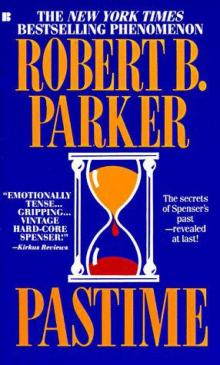 Pastime s-18
Pastime s-18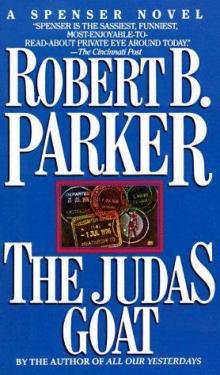 The Judas Goat s-5
The Judas Goat s-5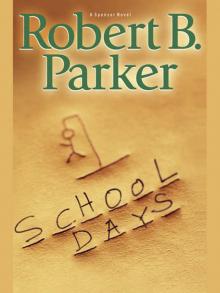 School Days
School Days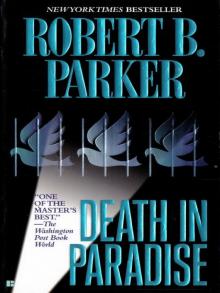 Death In Paradise
Death In Paradise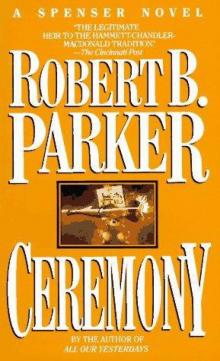 Ceremony
Ceremony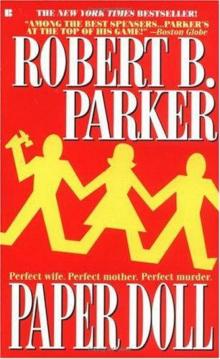 Paper Doll s-20
Paper Doll s-20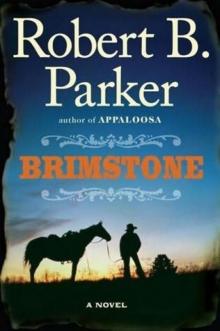 Brimstone vcaeh-3
Brimstone vcaeh-3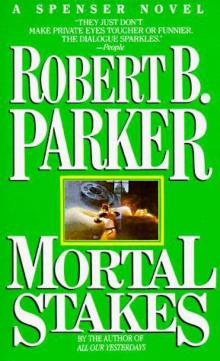 Mortal Stakes s-3
Mortal Stakes s-3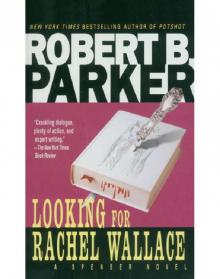 Spencer 06 - Looking for Rachel Wallace
Spencer 06 - Looking for Rachel Wallace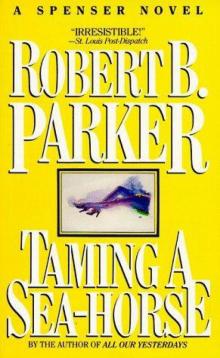 Taming a Sea Horse s-13
Taming a Sea Horse s-13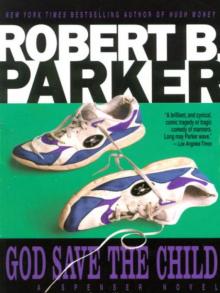 God Save the Child
God Save the Child Chance
Chance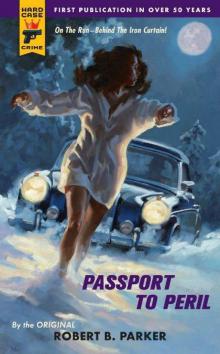 Passport To Peril hcc-57
Passport To Peril hcc-57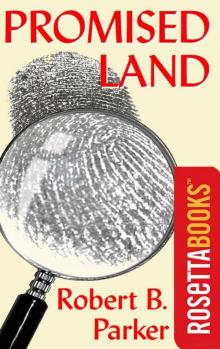 Promised Land
Promised Land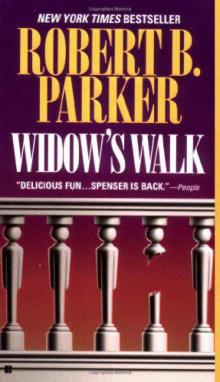 Widow’s Walk
Widow’s Walk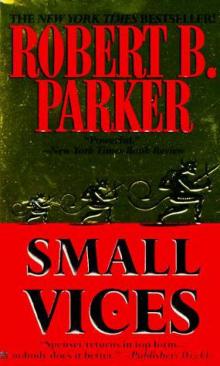 Small Vices
Small Vices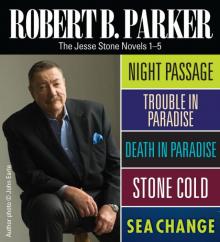 Robert B Parker: The Jesse Stone Novels 1-5
Robert B Parker: The Jesse Stone Novels 1-5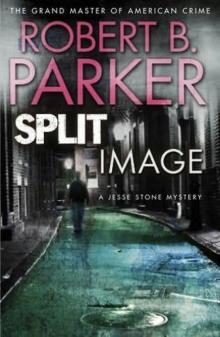 Split Image js-9
Split Image js-9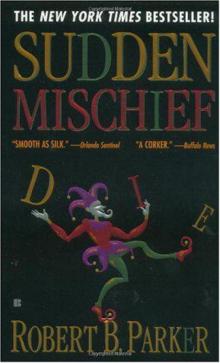 Sudden Mischief s-25
Sudden Mischief s-25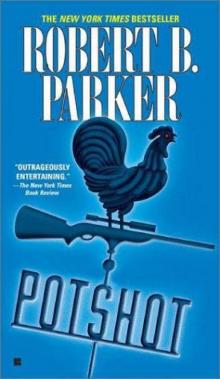 Potshot s-28
Potshot s-28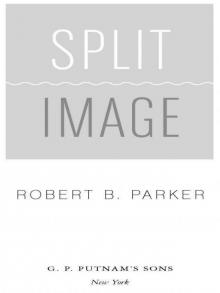 Split Image
Split Image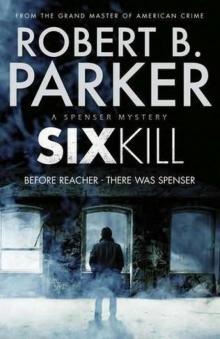 Sixkill s-40
Sixkill s-40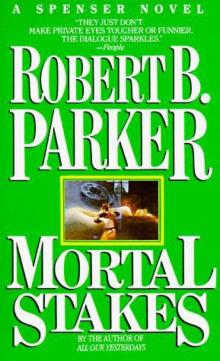 Mortal Stakes
Mortal Stakes Stardust
Stardust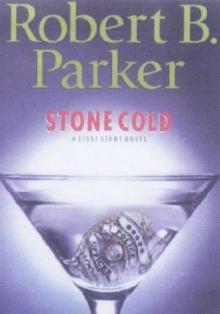 Stone Cold js-4
Stone Cold js-4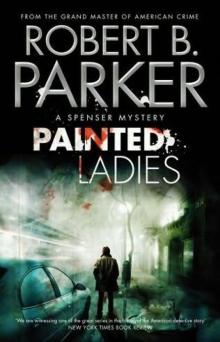 Painted Ladies s-39
Painted Ladies s-39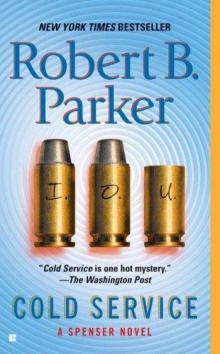 Cold Service
Cold Service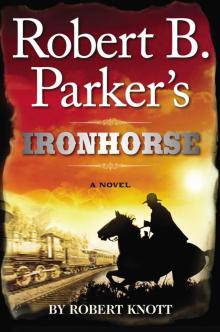 Ironhorse
Ironhorse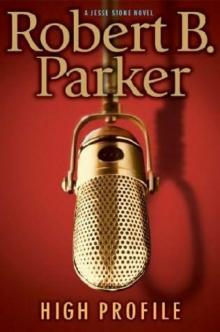 High Profile js-6
High Profile js-6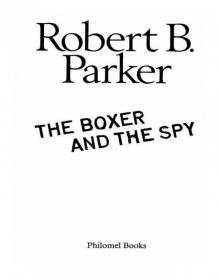 The Boxer and the Spy
The Boxer and the Spy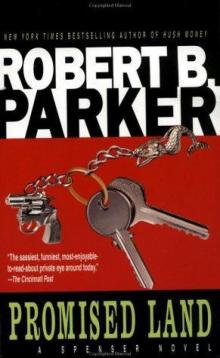 Promised Land s-4
Promised Land s-4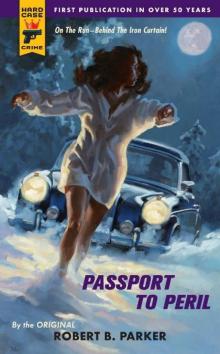 Passport to Peril (Hard Case Crime (Mass Market Paperback))
Passport to Peril (Hard Case Crime (Mass Market Paperback))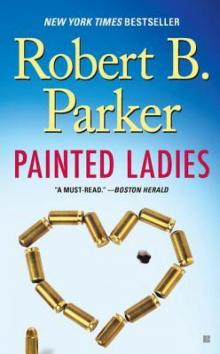 Painted Ladies
Painted Ladies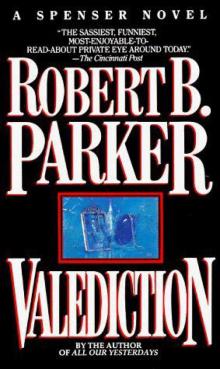 Valediction
Valediction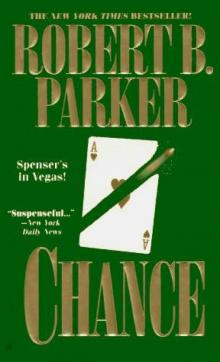 Chance s-23
Chance s-23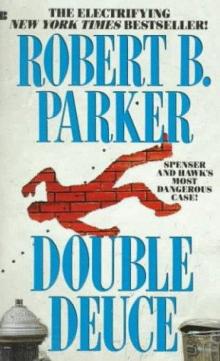 Double Deuce
Double Deuce Wilderness
Wilderness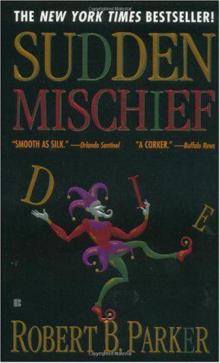 Sudden Mischief
Sudden Mischief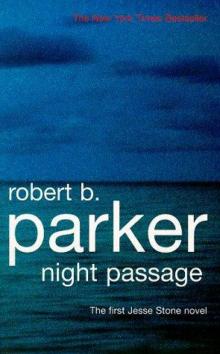 Night Passage js-1
Night Passage js-1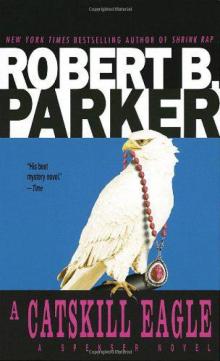 A Catskill Eagle
A Catskill Eagle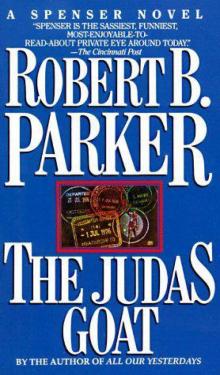 The Judas Goat
The Judas Goat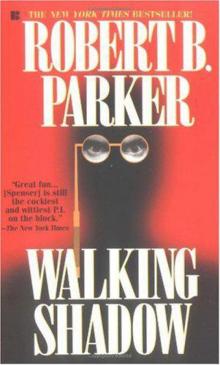 Walking Shadow
Walking Shadow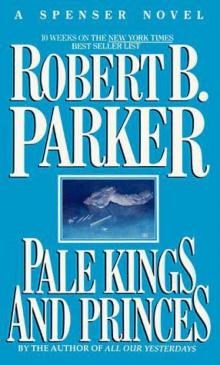 Pale Kings and Princes s-14
Pale Kings and Princes s-14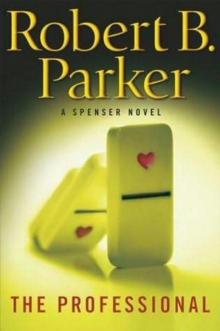 The Professional
The Professional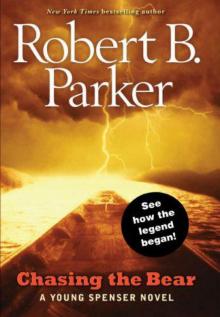 Chasing the Bear s-37
Chasing the Bear s-37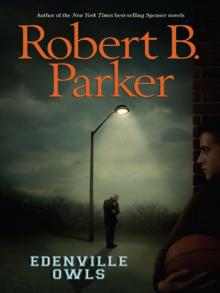 Edenville Owls
Edenville Owls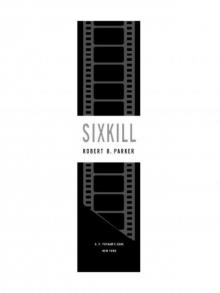 Sixkill
Sixkill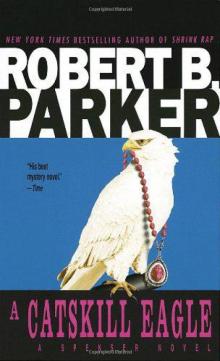 A Catskill Eagle s-12
A Catskill Eagle s-12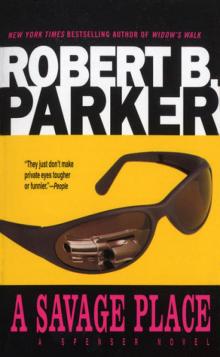 A Savage Place
A Savage Place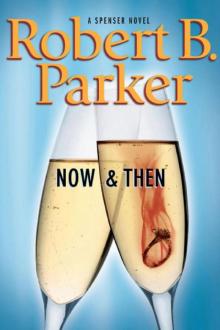 Now and Then s-35
Now and Then s-35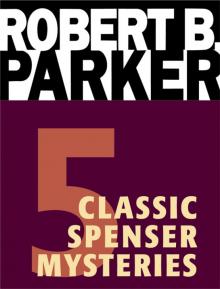 Five Classic Spenser Mysteries
Five Classic Spenser Mysteries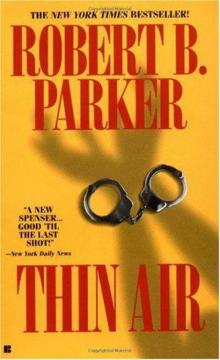 Thin Air s-22
Thin Air s-22